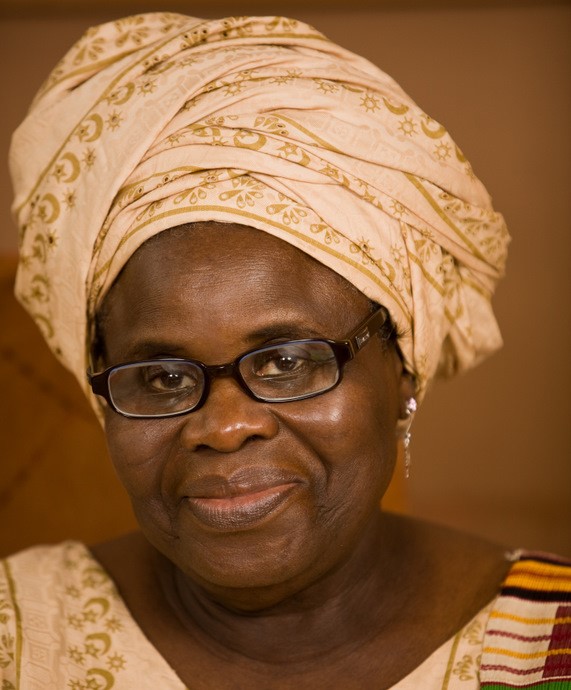[ad_1]

We have, as it were, all heard the news.
We have had pause to reflect, consider, mourn, and come to peace with the fact. Ama Ata Aidoo, who has now passed on, has been celebrated, will be celebrated, and eulogised, and rightly so. And I am writing this in memory of a life that has impacted mine, the Writers Project of Ghana, countless writers in Ghana, and many in other spheres. From the outset, I do not intend that this should be a long piece, but this is surely not for want of things to say. I am quite sad about this – our national bereavement.
In 2017, when the Writers Project of Ghana and Goethe-Institut organised the first edition of Pa Gya! A Literary Festival in Accra, we chose for the headline event a conversation between Ama Ata Aidoo and Kobena Eyi Acquah. This turned out to be an engaging event, light-hearted and thought-provoking at the same time, as the two friends and accomplished poets shared readings and their thoughts. I recall Kobena Eyi Acquah’s question, “What did you intend to achieve…” and Ama Ata Aidoo responding, “… I just wanted to write…” [Sadly Kobena Eyi Acquah is also deceased, having passed on in 2018.]
And write she did. She was a great story-teller – a fact clearly borne out by the easy relaying of the “gist” of any of her stories – which gist will be as engaging as the original text. Her writing was unlaboured, direct, and clear. In prose as in poetry, in poetry as in drama. But this is not the main point of my reflection here; the students of literature are best placed for this.
Here are a few personal memories, selected from many. In earlier, premier, interaction, perhaps two decades ago, when she was concerned about my seeming resistance to an editorial review of one of my short stories (this is not unusual for a neophyte) she firmly insisted on the edits, and that was the beginning of my understanding of how editing may just be the difference between good and bad publications. In 2008, an experiment led me to self-publish my collection of short stories, Mr Happy and The Hammer of God. Unbeknownst to me Ama Ata Aidoo and her daughter, Kinna, picked up on these stories and made a recommendation to Ayebia Clarke publishers, who subsequently published the book (with minor edits…!) in 2012. This publication has been a defining moment in my writing life. I am still not sure exactly what drew Ama Ata Aidoo to the stories, but I sure am thankful. Knowing Ama Ata Aidoo and Kinna also led to interesting meetings and connections – my meeting along with some friends, with Ngũgĩ wa Thiong’o in Accra, for example, was through the invitation of Ama Ata Aidoo and Kinna.
In the time that I knew her, I found that Ama Ata Aidoo whole-heartedly lent her support to individuals and groups within the literary space, and by so doing elevated many events simply through the importance of her person.
I must pause here to acknowledge Kinna, who has been a key supporter of my writing and the work that we do at the Writers Project of Ghana. Kinna is a very important player in the Ghanaian literature and advocacy space. And thank you for all you do, Kinna.
Let me return to Ama Ata Aidoo.
At the funeral in Accra of the Kojo Laing in 2018 (this piece is becoming heavy for me) which I attended with Kinna and Ama Ata Aidoo, it was clear that she was in grief at the death of a dear friend, and was in mourning. And with what dignity!
Last year, in April, the Ako Caine Prize Workshops landed again in Ghana, and the Ako Caine Prize, in collaboration with the Writers Project of Ghana, held an event in honour of Ama Ata Aidoo, titled “An Inter-generational Celebration of the Legacy of Ama Ata Aidoo”. Even though she could not be there in person due to being under the weather, she joined via Zoom and stayed throughout the entire event, which is a testament to her indomitable spirit. The event stayed true to its theme: in conversation, it was clear that Ama had established a legacy of inspiration, reaching across the years and generations.
May I leave it to others who have been in that space with her to provide detail, but I can say that her firm conviction of the dignity of the African personality and her abhorrence of injustice always came through forcefully in conversation. And yet she was kind, generous and welcoming – so it was startling to hear the unyielding robustness of her stance. She would leave no quarter in that fight.
But Ama Ata Aidoo has passed on. She has left a legacy that reaches way beyond her stories, which are substantial in themselves. She leaves behind many lives touched and brightened, and her memory will surely persist.
In death, as in life, Ama Ata Aidoo is larger than life.
Rest well, Ma.
Martin Egblewogbe
Legon, 10th June 2023
[ad_2]
Source link


